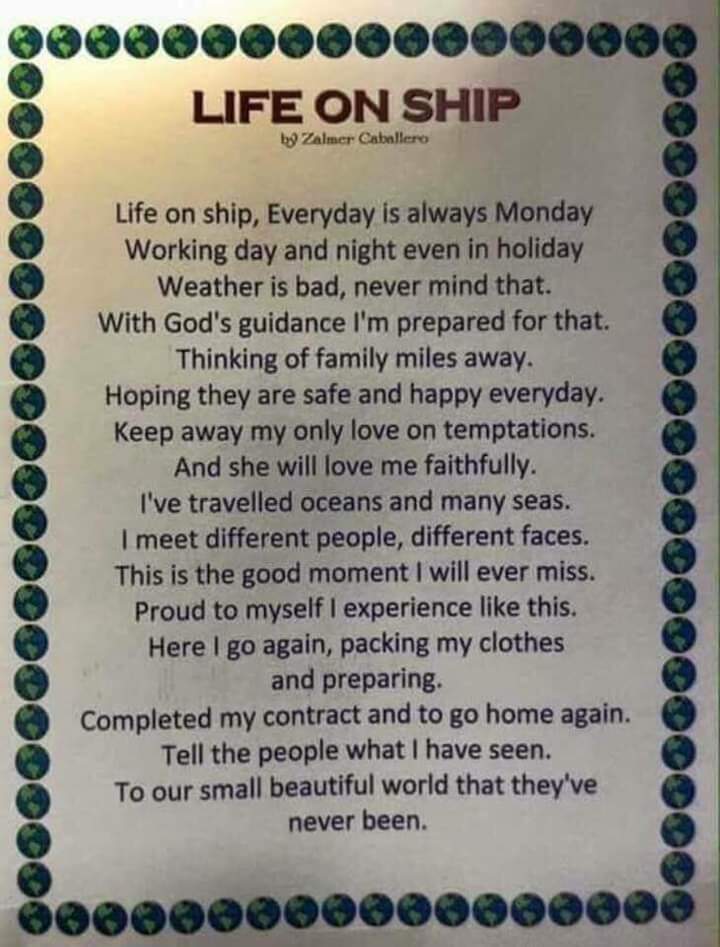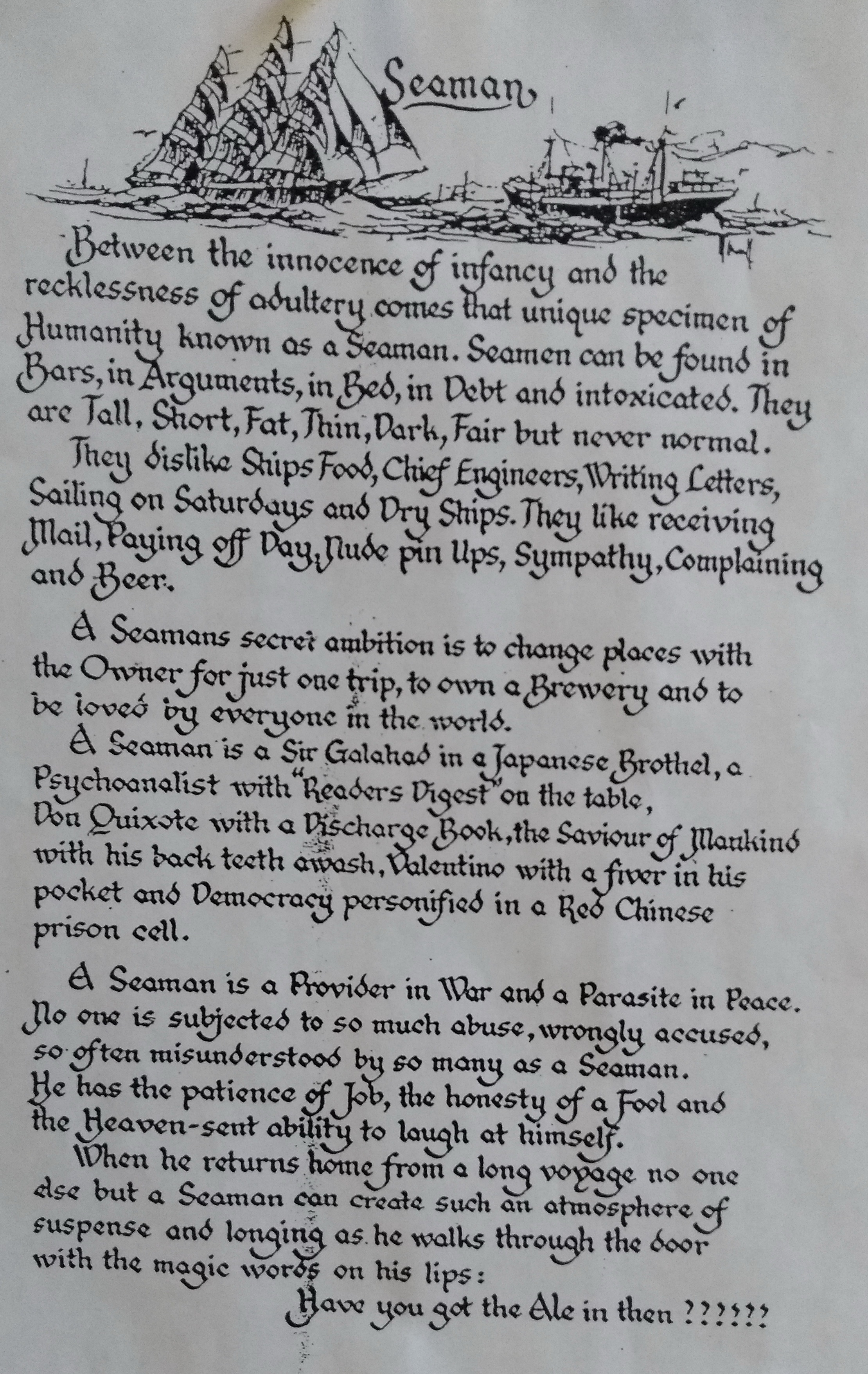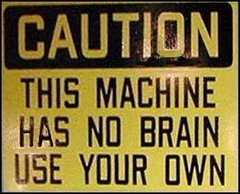Welcome to the training area
Your source of information on your career path in the Marine Engineering field
They are the happiest addition to the ship's staff since the advent of steam. The officers of the glorious age of sail may never have felt there was something lacking: who sails on a windjammer now, after having traveled on steam, misses not the engine, but the engineers.
-Jan DeHartog
Firstly
Let us explore what it is to be
a Marine Engineer.
Check out these links to learn more about the job
- Click here to read about being a mariner, and working on ships
- Continue to this page to read about the marine engineering field from the US gov and NZ gov
- Then read here for an actual job description
- Visit the Canadian Government's clumsy analysis of the wages and outlook; one from the USA and here from the United Kingdom (UK)
- Students, in particular, may be interested in these student questions and answers
Why ?
So you want to be a marine engineer. Most persons in the field may say to you "Don't even think about it! Unless you have lots of time on your hands, no family, and the ability to live on 250 dollars a month."
Besides that, you need to get intimate with many government regulations; get probe every two years for your prostate condition and suck up to a whole lot of people you may not really like. You will have to get used to a whole lot of painting and banging your head on very sharp objects, hanging from the deck head. One more thing; you'd better get used to been treated like an imbecile for the first five years of your career - generally longer. Be ready to be frustrated with comments like, we are so short of people, yet no one will give you a chance at a berth.
"So why do it?" you ask. Some person may answer that with various answers such as adventure, challenge, money. For me it's a matter of "love". I've been impressed by all sort of machinery, trains, trucks and airplanes. The modern ship has to be the pinnacle of these transportation medium. Other may have differing opinions, one thing is for sure, do ask someone why.
Personally, I was never really interested in the job the "guys in white" did - deck crew and bridge operations, although they are usually quite skilled in what they do. I was most interested in how the machinery, and the guys in the engine room operated. Also, the money isn't so bad when you move up the ladder. But one of the biggest perk is the time, or I should say months, off.
On this webpage you will find information on how to become a Marine Engineer. As well as provide information on the "next level" and how to improve your performance at your current engineering level. Hopefully you will find this information useful in mapping out your career path.
"I demand more of myself than anyone else could ever expect."
- J. Irving
The "Long Road"
All Canadian Engineering License requirements are dictated by the Canada Shipping Act 2001. These requirement are enforced by Transport Canada, specifically the Transport Canada Marine Safety division. It is strongly advise that you get familiar with the CSA, its regulations, and your local Marine Engineering examiner. Not from Canada, don't worry, the system in your country, and its structure, should be similar as all systems try to follow the guidance put forth by the International Maritime Organization (IMO).
Marine Safety offices are located throughout Canada. In British Columbia offices are locate in Victoria, Nanaimo (except no examinations are done there), Prince Rupert, and the main office is located on Robson Street in downtown Vancouver. Each office has at least, most likely, one or two engineering examiner. This person is going to be licensing you, be nice, at all cost (it's a small field and you will not have anybody else to turn to).
 Click here to download a copy of the Standards of Examination and
Certification for Canadian Seafarers. Below, is a simplified description of the
requirements you must complete, in order to become a marine engineer, and the
steps required to meet the next level (ticket). For the exact requirements
please see the actual
Marine Personnel Regulations
(MPR). You can also find more information in
TP2293/07.2007 - The Examination and Certification of Seafarers, pictured on
the right. There are numerous exemptions which may allow you to bypass /
shortcut some regulations, check it out.
Click here to download a copy of the Standards of Examination and
Certification for Canadian Seafarers. Below, is a simplified description of the
requirements you must complete, in order to become a marine engineer, and the
steps required to meet the next level (ticket). For the exact requirements
please see the actual
Marine Personnel Regulations
(MPR). You can also find more information in
TP2293/07.2007 - The Examination and Certification of Seafarers, pictured on
the right. There are numerous exemptions which may allow you to bypass /
shortcut some regulations, check it out.
Canada's MPRs (Marine Personel Regulations) are similar to these...
- From Australia, for junior ranks of engineering,
- these ones from Iceland
- here are Hong Kong's standards for engineer certification
- New Zealand's Certification of Seafarer issues in Jan 2014
- United Kingdom's UK MCA STCW2010
Curious about large yacht engineering training and certification requirements, this handy guide sums it up: 2013 MCA Yacht Engineering Qualifications
In July 2013, Transport Canada regulations came into force, concerning the training of Marine Engineers in Canada, and in particular the upgrading of Certificate of Competency (CoC) from 4th and 3rd class, to 1st and 2nd class. These training requirements found in TP8911 - Engineering Officer Education and Training Program brings Transport Canada regulations in line with what is currently the norm for most other IMO nations. However, currently (May 2015) there is no Canadian Institutions ready to adopt or offer this training in Canada. What this would allow, is to by-pass the dodgy Transport Canada exams route, by recognizing formal upgrading training included in this document, in order to upgrade CoC to Second or First Class.
2018.06 - Note - The regulating agency for seafarers in Canada, Transport Canada (TC), is hopelessly behind in producing regulations, in particular, updating the regulations to comply with the IMO's STCW2010 convention. As such, numerous Certificate of Compentency (CoC) / examination items are up for interpretation, and half solutions. If you are planning to undertake Marine Engineering licensing in Canada, outside of the Marine Engineering Cadet Program, it is strongly suggested to familiriaze your self with the numerous requirements before starting anything, especially the fourth and third class CoC.
New regulations, MPR2019, are envision to come into force Summer of 2019, at the earliest, and will considerably change the information offered on this page. Until then, the MPR as describe below are essentially in effect, but additional requirements to meet STCW2010 are stipulated in the following documents.
For more information on the SSB fiasco and the new regulations being proposed, please see our blog entries .
2019.12 - Note - Heres are some update information on the complete review of Canada's Marine Personel Regulations to bring them in line with IMO's Manila Admendments, still ongoing as of February 2020. The following are proposals and discussion papers as to what the MPR may look like if they ever see daylight.
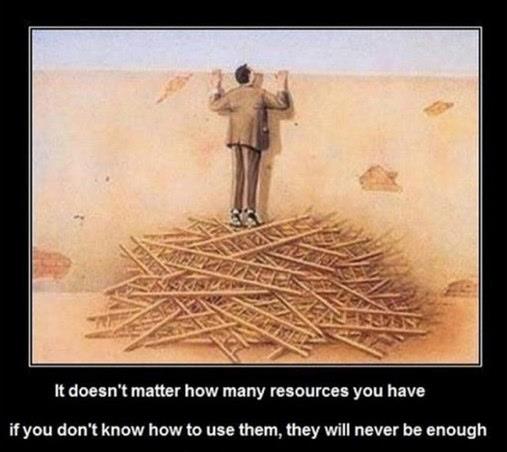
If you have a Certificate of Competency (CoC), or training, from a country other that Canada, Transport Canada offers this information on achieving marine certification in Canada. This process and types of questions are somewhat common to all jurisdiction that issue seafarer certificates.
Your career (in Canada) starts here !
Below are the basics requirement to becoming an engineer, on a "typical" commercial ship. Each section requires qualifications mentioned in the section above it. These requirements are applicable in Canada, but with STCW (Standard of Training Certification and Watchkeeping) standards from the IMO, most other nations will require you to complete a similar set of steps in order to achieve the desired Certificate of Compentency, also known as a license, CoC, ticket.
Engine Room Rating STCW III/4
See
Marine Personnel Regulations (MPR)
172 for reference
- Obtain Mariner's Discharge Book and a CDN number
- MED (Marine Emergency Duties) STCW VI/1 with respect to Basic Safety
- MED STCW VI/2 with respect to survival craft and rescue boats other than fast rescue boats
- Marine Basic First Aid
- Hold a Valid Seafarer's Medical
- 6 months qualifying service consisting of at least 3 months sea service as and Engine Room Rating and the remainder time in any combination of the type of service required for 4th Class as set out in MPR 147 (1) OR
- If the applicant has obtained a training certificate in ER Rating duties, at least 3 month's qualifying service consisting of 2 month's sea service as ERR and the remainder time in any combination of the type of service required for 4th Class as set out in MPR 147 (1)
- Pass a written OR and oral examination on General Engineering Knowledge. 60 multiple choice questions, 2 hours allowed.
- Here's a list of Transport Canada approved Training Schools and Courses.
- Here is Transport Canada's Engine Room rating training guide.
- Description of what an MED is, and how it relates to worldwide STCW standards, is further down this page.
Transport Canada electronic forms for...
- Transport Canada Engine Sea Service Engineering Testimonial form. The old style is here: front and the back of the form.
- Transport Canada Application for a CDN Number
- Transport Canada Application for Certification
- Transport Canada EXN2 Summary of sea time for certificate
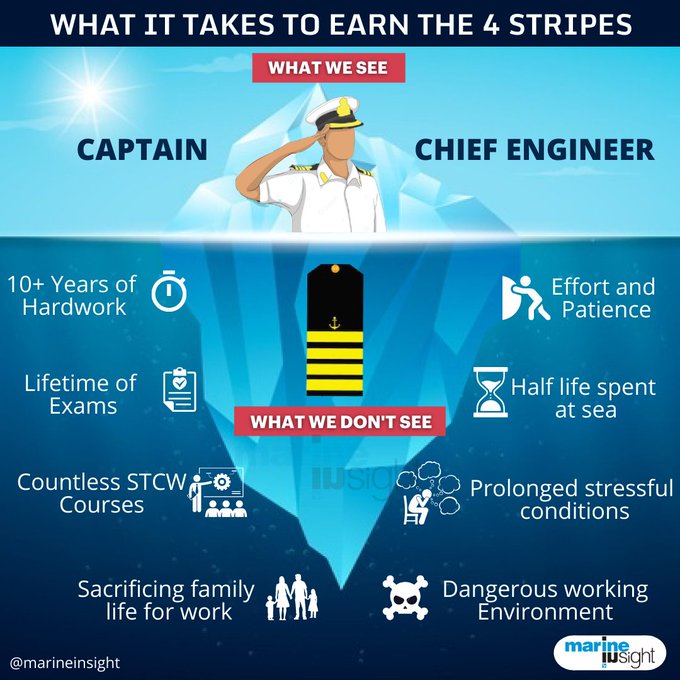
 Fourth Class Marine Engineer (Officer) STCW III/1
Fourth Class Marine Engineer (Officer) STCW III/1
See
MPR 147 for reference
- 36 months qualifying service (at least six month actually at sea - rest can be schooling or experience in other fields, shops etc.)
- Complete approved Skills Training Course (see TP 13720 - six months schooling - goes to sea time credit) "Alternate Path"
- Basic Skills is at section 11 of TP13720.
- Complete Training Record Book (see TP 13721)
- PPS (Propulsion Plant Simulator) Level 1 - Watchkeeping Practices
- MED (Marine Emergency Duties) STCW VI/1 with respect to Basic Safety
- MED STCW VI/2 with respect to survival craft and rescue boats other than fast rescue boats
- MED VI/3 with respect to advanced fire fighting for Officers
- Pass General Engineering Knowledge Examination - multiple choice examination 150 questions. 3.5 hours
- Pass multiple choice EK Motors / Steam - multiple choice examination , 75 questions, 3.5 hours
- Pass EK - oral examination, as long as it takes.
- Transport Canada approved Marine Advance First Aid (MAFA)
- Hold a valid Seafarer's Medical
- This STCW95 license allows you to work as Engineering Officer of the Watch (EOOW) without restrictions on any ship
- Be aware, Transport Canada issues two types of 3rd Class ME licenses the 3M (older, conforms to STCW III/1) and the 3MN (new, conforms to STCW III/3) depending on the associated training you have completed
- May serve as Second Engineer on a Motor Ship of less than 2000kW, after serving 12 month sea time as rating, engineer, or watch keeping engineer on a ship with at least 750kW power. (Marine Personnel Regulations, sections 219 to 222; TP2293 29.2)
*** Transport Canada (TC), in July 2006, issued a study guide to become a Fourth Class Engineer, check it out. TC has also issued some guidance on Training Books. If you are not able to attend the "approved schools", you may be able to substitute programs in from trades school near you. In British Columbia, for example, Vancouver Island University, with campus throughout the region, offers a course to meet the TC criteria from their "trades training" offerings, even though they are not an approved Marine Training institution.
Third Class Marine
Engineer (Officer) STCW III/1 and III/3
See
MPR 146 for reference
- Hold Fourth Class License (completed the steps in above section)
- 12 months qualifying service as watch keeping engineer after acquiring service for 4th Class.
- MED D - Senior officer training
- Pass Applied Math -written examination 3.5 hours
- Pass Applied Mechanics -written examination 3.5 hours
- Pass Applied Thermodynamics -written examination 3.5 hours
- Pass Electro Tech -written examination 3.5 hours
- Pass EK General-written examination 3.5 hours
- Pass EK Motor or Steam -written examination 3.5 hours
- Pass EK -oral examination As long as it takes
- Transport Canada approved Marine Advance First Aid (MAFA)
- Hold a valid Seafarer's Medical
-
This STCW95 license allows you to work as Engineering Officer of the Watch (EOOW) without restrictions on any ship.
- May serve as Second Engineer on any Motor Ship of less than 3000kW; 4000kW on Passenger ships between Canadian Ports.
- May serve as Chief Engineer on Home Trade vessels only, with restrictions, see regulations for full details: Marine Personnel Regulations, sections 219 to 222; TP 2293 28.2
Second Class Marine Engineer (Officer) STCW III/2
See
MPR 145 for
reference
- Complete the sections above
- 12 months qualifying service as watch keeping engineer, after acquiring service for 3rd Class.
- PPS Level 2 - Plant management
- Pass Applied Mechanics -written examination 3.5 hours
- Pass Applied Thermodynamics -written examination 3.5 hours
- Pass Electro Tech -written examination 3.5 hours
- Pass Naval Architecture -written examination 3.5 hours
- Pass Technical Drawing -written examination 6 hours ***
- Pass EK General-written examination 3.5 hours
- Pass EK Motor or Steam -written examination 3.5 hours
- Pass EK -oral examination as long as it takes
- Transport Canada approved Marine Advance First Aid (MAFA)
- Hold a valid Seafarer's Medical
 *** Blueprint Interpretation is a
"Block Credit
Course" delivered at certain approved Colleges and is accepted in lieu of the
Technical Drawing examination specified in MPR 145 (1) table item 4(a)(v).
*** Blueprint Interpretation is a
"Block Credit
Course" delivered at certain approved Colleges and is accepted in lieu of the
Technical Drawing examination specified in MPR 145 (1) table item 4(a)(v).
- This STCW95 license allows you to work as Second Engineer without restrictions on any ship.
- May serve as Chief Engineer on any Motor Ship of less than 3000kW.
- May serve as Chief Engineer on Home Trade 4000 - 7000 kW vessels, with restrictions, see regulations for full details:
- Marine Personnel Regulations, sections 219 to 222; TP 2293 27.2.
Here is sample
course offering and cost from Newfoundland's Memorial Marine Institute for 2008.
Here is sample of marine course offerings from
Georgian College
in Ontario, for 2017.
First Class Marine Engineer (Officer) STCW III/2
See
MPR 144 for
reference
- Complete the sections above
- 15 months sea time while holding a Second Class license; 9 months on a vessel with at least 3000kw, other sea time on vessels with a minimum 1500 kw
- Pass Applied Mechanics -written examination 3.5 hours
- Pass Applied Thermodynamics -written examination 3.5 hours
- Pass Electro Tech -written examination 3.5 hours
- Pass Naval Architecture -written examination 3.5 hours
- Pass EK -written examination 3.5 hours
- Pass EK Motor or Steam -written examination 3.5 hours
- Pass EK -oral examination as long as it takes
- Transport Canada approved Marine Advance First Aid (MAFA)
- Hold a valid Seafarer's Medical
- This STCW95 license allows you to work as Chief Engineer without restrictions on any ship (depending on your steam or motors license designation) - Top Dog. See regs for full details: TP 2293, sect 26.2
" Always remember that the future comes one day at a time. "
- Dean Acheson
 In addition to the "path" above, like other nations, Canada also
issues certificates for specific operations. These are not STCW (international)
compliant certificates, and therefore only apply to "local" sectors...
In addition to the "path" above, like other nations, Canada also
issues certificates for specific operations. These are not STCW (international)
compliant certificates, and therefore only apply to "local" sectors...
Watchkeeping Engineer, Motor Driven Fishing Vessel (non STCW)
See
MPR 150 for
reference
- 12 months sea service on one or more motor vessels with a propulsive power of at least 125 Kw as Engineer or ERR. OR 3 months if the applicant has completed an approved course on diesel engines.
- MED STCW VI/1 with respect to basic safety
- MED STCW VI/2 with respect to survival craft and rescue boats, other than fast rescue boats.
- PPS level 1, watchkeeping practices.
- Pass EK General- multiple choice, 60 questions, 3.5 hours
- Pass EK Motors - multiple choice, 60 questions, 3.5 hours
- Oral Examination, as long as it takes
- Marine Basic First Aid
- Hold a valid Seafarer's Medical
- Validity - watchkeeping Engineer on a motor driven fishing vessel less than 2000 Kw. MPR 224 (1)(a)(ii)(B); TP2293 32.2
- This certificate is equivalent to Small Vessel Machinery Operator. TP2293 32.2
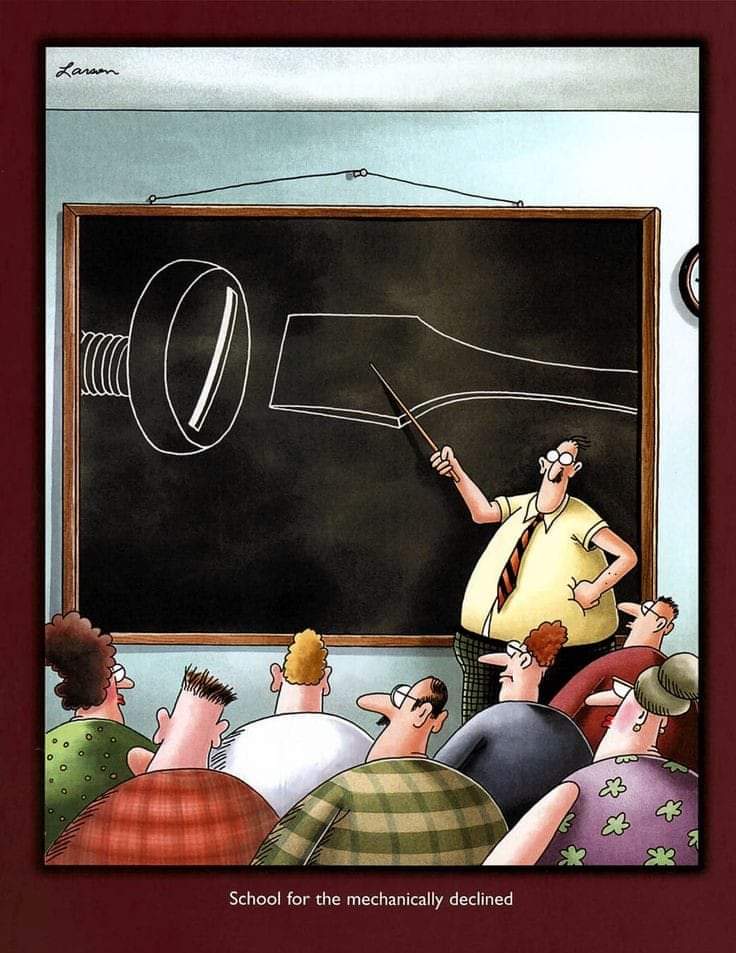
Small Vessel Machinery
Operator (non STCW)
See
MPR 151 for reference
- 2 months of qualifying service consisting of at least one month of sea service as Engineer or ERR on one or more motor vessels and the remainder time in any combination of the type of service required for 4th Class as set out in MPR 147 (1).
- MED A2 with respect to small vessel passenger safety.
- Pass EK General- multiple choice, 60 questions, 2 hours
- Oral Examination, as long as it takes, for Unrestricted SVMO. OR
- Oral Examination, as long as it takes, on board a specific vessel for SVMO restricted to that vessel on a specified operation.
- Marine Basic First Aid
Download TC's TP14814 study guide for SVMO
"There are risks and costs to any action; but they are far less than the risks and costs of comfortable inaction."
- US President John F. Kennedy
 The costs of becoming and being a Marine Engineer
The costs of becoming and being a Marine Engineer
For convenience and planning, these documents compile a list of various published costs involved in becoming a ship's engineering professional in Canada.
- Costs of becoming an Engine Room Rating (2013)
- Costs to becoming TC 1st Class COC using the Cadet Stream (2013)
- Costs to becoming TC 1st Class COC using the Alternate Path (2013)
In 2013, I wrote about the burdensome upgrading process, which may be of interest to you, if contemplating this career choice. Offers insight and explores the challenges to going about it in Canada.
The 6 P's: Prior Planning Prevents Piss Poor Performance
If you are about to, or are just coming out of high school, and are curious about becoming a seagoing Marine Engineer, click on the picture below to see career promotional material from various organizations around the world. You can also read my answers to questions student have asked me over the years.
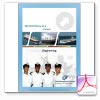 |
 |
 |
 |
| From Indian ship manager, Fleet Management Ltd. | The Royal Canadian Navy (Military) | From the Australian Institute of Marine & Power Engineers | The Marine Society in the UK puts out this brochure. |
"Everybody has a plan, until they get punched in the face."
- Mike Tyson
"Ok, so it's a big commitment, I'm up for it ! What's Next ?"
Each path to reaching First Class Marine Engineer ticket has it's own advantages and merits. Proper consideration should be given to each path as it applies to you. It should be mentioned that I see the First Class Marine Engineering Certificate as being the ultimate career goal. It must be said that many persons that I have met, are quite content reaching the thirds or second class certification.
- The apparently easy, but actually hard way
- The Marine Engineering Cadet Program
- The Marine Engineering Apprenticeship Program
- The Marine Engineering Diploma course.
- The Canadian Coast Guard College.
- Foreign institutions
The apparently easy, but actually hard way
This way was much easier before 2004, but now has become challenging, because of the full enforcement of STCW95. You can still achieve all the requirements of Transport Canada for the Fourth Class by yourself though, its just a bit more complicated than it used to be.
Here's where it get even harder - assuming you want to move up the career ladder. To move up, you will need to take the third's ticket. That requires an additional 12 months sea time and the taking of written exams, including, Electro Tech, Applied Mechanics, Applied Heat, Math and the usual EK (Engineering Knowledge) and EK Motor (or Steam). As well, an oral examination. These exam are technical and you will need to study hard but you may be able to passed them without formal instruction.
Then if you survive with your stride and ego intact, and wish to continue up the career ladder; you will need an additional 12 months sea time, and start studying early. The second's exams are in the same style as the third's ticket, except they will be very technical. Additionally, you will have more subjects like Drafting and Naval Architecture. If you felt overwhelmed taking the third's ticket, you will most-likely need formal instruction at some college for the second's ticket. The second's ticket apparently is the most technical along the road to chief engineer certification. This is because of the large amount of material learned from books, i.e. math and sciences, as opposed to the material needed in the fourth class, which is predominately learned on the ship.
After 18 more months of sea time you are eligible to challenge the first class exams, which are quite hard. But because you are familiar with the concepts studied for the second's class, and focusing on the more technical side of these concepts, the first class should be straight forward... hard.
As you can see, the road is long and it's not easy by oneself. The more efficient and logical way would have to be the ones describe below.
 The Marine
Engineering Cadet Program
The Marine
Engineering Cadet Program
The Marine Engineering Apprenticeship Program
The apprenticeship program is no longer offered. The Canadian Federal and the BC Provincial government, in their wisdom, have chosen to discontinue this program in 1998 - go figure. The new program replacing it, undertaken without the leadership of government and encompasses all the apprenticeship's goals, is called the Marine Engineering Cadet Program. On the Canadian west coast, this program is offered by the British Columbia Technical Institute (BCIT) from it's Pacific Marine Campus (PMTC) formally know as PMTI (Pacific Marine Training Institute). The program involves taking young adults, 20 years old or so, and giving them all required training and experience for their first certificate - and beyond. This takes a strong initiative and vision from the young adult, but it is a sure way to developing a future.
The training starts with a Marine Diesel Engine course, the same as the 9 months pre apprenticeship Diesel Mechanic course. The training also involves all the technical subjects covered in the Transport Canada requirement for Fourth Class certification (Training Record Book, Skills Training, Sea Time). All prerequisite license course such as MED (Marine Emergency Duties) and PPS (Propulsion Plant Simulator). As well, one of the best features of this program, is the experience. As a cadet you will be assigned to several ships, on which the cadet will serve a six months contract, and will get paid for it. The cadet will not get paid much, but at least there will be a less significant student loan burden, unlike most other people going to university.
The cadet program is grueling and may not sound like fun. On the flipside, it is well structured and has a good balance of experience and book smarts. It is a color by number type of way to a secure, fulfilling and admirable life long employment.
I have only highlighted some points of the program please see the BCIT web site for complete and accurate info. Click here to see the full Transport Canada requirements and objectives (TP8911) of the Cadet Program in Canada.
Cody M. sends the following comments in August 2009, regarding cadet pay.
" ...while this is partially true, a cadet in this program can only expect $300-$900 a month as cadet wages, while this is similar to the coast guard college it is extremely hard to live in North Vancouver at these wages, not to mention tuitions and books. Even at $900/month it will take 4 months sea service just to pay basic tuitions. I graduated from BCIT and I can say that each student that leaves there, has at least $20,000 in Provincial and Federal student loans... not as bad as university, but still no small figure. Just thought I would point this out to you. "
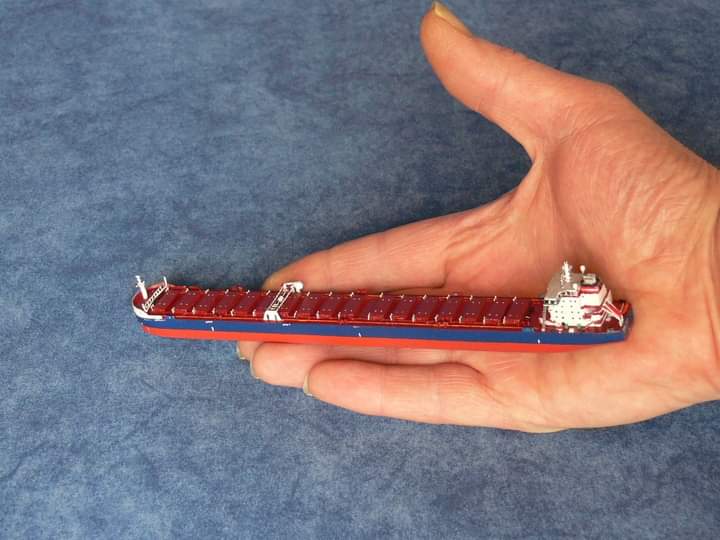 The Marine Engineering Diploma course
The Marine Engineering Diploma course
The Canadian Coast Guard College
Like the Apprenticeship program, the diploma course developed by PMTI is no longer offered. If you are employed on the BC coast, chances are, one of your superiors is a graduate from this program, offered in the eighties. PMTC has pretty much combine this very "in the books" program, with the more "hands on" apprenticeship, to form the new Cadet program mentioned above. But if you are interested in the more technical aspect of shipboard marine engineering, the Canadian Coast Guard offers a good program.
They take student from a predominately academic background and send them through their own specific training. It is my understanding that the life at the college in Nova Scotia is "plush". The details of life (food, lodging, entertainment) are well looked after and there is a good, steady paycheck. The Coast Guard College is a great avenue for women to get into an otherwise male dominate trade. The downside: long military type contracts. Four years of schooling for four years of service on Canadian Coast Guard Ship is a long commitment.
" I am a grad of this institution so I have a few insights: "The biggest being the long military style contracts." The deal is that you serve 1 year for every year of training (yes same as the military) therefore you would owe them 4 years at graduation. This is a good thing though, not a bad thing, and is actually the College's greatest advantage over every other institution. This is 4 years guaranteed work as an Engineer (i.e. type A seatime) by the end of the 4 years you should have accrued enough time to write your 2nd Class, I had my 1st in less than 6 years from grad. Getting this seatime as a new grad with a 4th class ticket can be very difficult - in BCFC a 4th's will get you hired as a casual ERA. After your term of service for the Guard is up you are just a regular civil servant who can stay or go as you please. You are, of course getting paid regular wages after graduation, before that, the training allowance is effectively beer money, but at least there is no student loans."
"Oh yeah, since 1989 the College has actually been a Degree granting institution (Bachelor of Technology, whatever that is?) looks good on the wall though). The other thing is that, though it is an academic style school, it actually gives the student more hands on time than what I've heard about other programs through their grad's. At the College we spent 1 day a week in the machine shop, plus some weekends. ( i.e. about 20% of course time). I admit to having a biased view of the CCG College, I think I did very well by it and enjoyed my time in the Guard. I now work for BCFC at Swartz Bay as a Relieving Chief. "
- Received by email 12.2001

Training outside Canada
It is my understanding that the diploma and Coast Guard College approach, describe above, are very similar to the training preferred in the United States, although the US styles is much more military like. Some of these types of colleges in the USA are the Merchant Marine Academy at Kings Point. There is also Massachusetts College, Maine Maritime Academy as well as others.
In Europe the training is mostly done on the ship and in the form of a cadetship. Cadets are recruited at a much younger age, as young as 16. They follow similar training patterns as mentioned above. They have one additional advantage to Canada's training. That advantage in some countries like the Netherlands, is they also obtain a watch keeping mate's ticket as well as fourth engineer's ticket. Allowing the cadet to obtain a better grasp of the running of a vessel, which will be most beneficial in the shore side employment field further down the career.
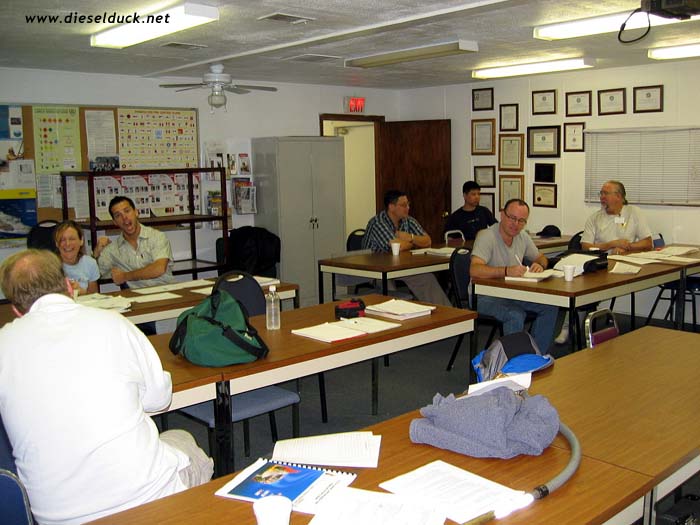 Here is a
handy page on the engineering path through the
Yacht ranks (UK's MCA rules),
another handy guide sums it up: 2013
MCA Yacht Engineering Qualifications
Here is a
handy page on the engineering path through the
Yacht ranks (UK's MCA rules),
another handy guide sums it up: 2013
MCA Yacht Engineering Qualifications
"A sure cure for seasickness is to sit under a tree."
- Spike Milligan
Maritime training institutions
Maritime training in Canada is principally done by provincially funded institutions, apart from the Coast Guard College which is Federally funded and WMI which is privately funded. These institutions (west to east) have established Maritime Faculties, and most offer Cadet Programs.
- Western Maritime Institute, Ladysmith, BC
- BCIT's Pacific Marine Training Campus, North Vancouver, BC
- Georgian College, Owen Sound, Ontario
- Institut Maritime du Quebec, Rimouski, Quebec
- Holland College, Summerside, Prince Edward Island
- Nova Scotia Community College, Port Hawkesbury, Nova Scotia
- The Canadian Coast Guard College, Sidney, Nova Scotia
- Check out the Marine Institute, St John's, Newfoundland
There are quite a few other maritime training institutions, provincially and privately funded, these tend to be smaller in scale of programs offered and generally through the local community college. I use to maintain a list of worldwide maritime training institutions, but decided instead to edit and use Wikipedia's, check it out.
A photo tour of the various Canadian institutions listed above can be found on the Image Area.
In the United States, they even have Nautical themes High School such as the Maritime Academy of Toledo.
The Men Who Sail Below
Now each of us, from time to time, have gazed upon the sea,
and watched the warships pulling out, to keep the country free.
And most of us have read a book, or heard a lousy tale,
about the men who sail these ships, through lightning wind and hale.
But there is a place within each ship, that legend fails to teach
it's down below the water line, and takes a awful toll,
a red hot metal living hell, those sailors call the hole.
It houses engines run by steam, that make the shafts go round,
a place of fire, noise and heat, that beats your spirit down.
Where boilers make a hellish heat, with blood of angry steam,
and moulded gods without remorse are nightmares in your dreams
Where threat from the fires roar, is like living in doubt,
that any minute, would with scorn, escape and crush you out,
where turbines scream like tortured souls, alone and lost in hell.
Those men who keep the fires lit and make the engines run,
are strangers to the world of night, and rarely see the sun.
They have no time for man no beast, no tolerance for fear,
their aspect pays no living thing the tribute of a tear.
For there's not much that men can do, that these one's haven't done,
below the decks, deep in the hole, to make those engines run.
And every hour of every day they keep the watch in hell,
for if the fires ever fail, their ship's a useless shell.
When warships meet to have a war, upon an angry sea,
the men below just grimly smile at what their fate may be.
Turned too below, like men fore-doomed, who wear no battle cry,
it's well assumed that if they're hit, the men below will die.
Foe every day's a war down there, when the gauges all read red,
six hundred pounds of heated steam will kill you mighty dead.
So if you ever write their song or try to tell their tale,
the very words will make you hear, a fired furnace wall.
And people as a general rule, don't hear of men of steel,
so little's heard about this place, just inches from the keel.
But I can sing about this and try to make you see,
the hardened life of men down there, cause one of them is me.
I've seen these sweat soaked heroes fight, in superheated air,
to keep their ship alive and right, though no one knows they're there.
And thus they'll fight for ages on, till warships sail no more,
amid the boilers mighty heat and turbines hellish roar.
So when you see a ship pull out, to meet a warlike foe,
remember faintly if you can "the men who sail below"
- Author Unknown
Question time
Can I train in Canada, with you?
I often get the question about training with me or my organization - I am not a training organization and I do not offer any Transport Canada approved training.
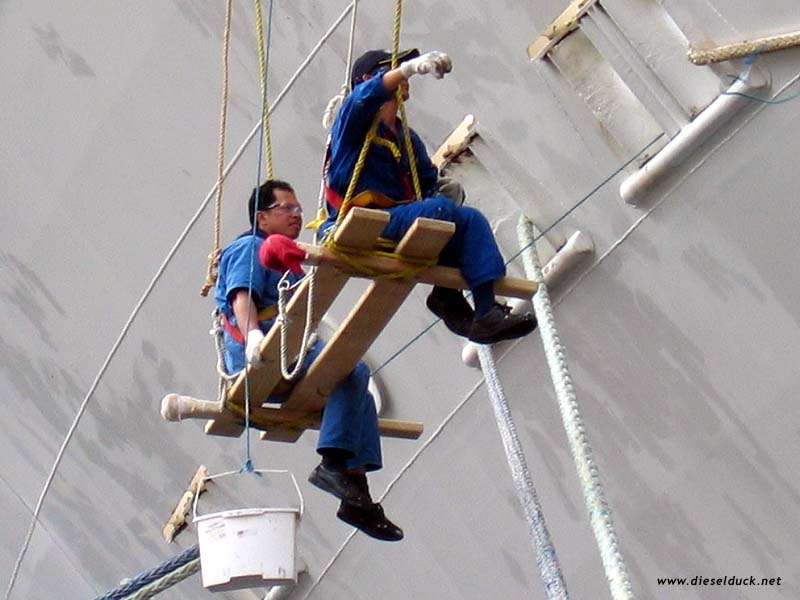 In
regards to your main question, can you train in Canada (or any other country
other than "your own"). There are many hurdles in getting a Marine Engineering
Certificate of Competency (CoC), the primary one is your nationality. Usually
the nationality (passport) you hold, is also the nation whose CoC you will be
issued from, no matter where you go to school. Furthermore, the marine
certification authority in that country, will only recognize courses that are
approved by them.
In
regards to your main question, can you train in Canada (or any other country
other than "your own"). There are many hurdles in getting a Marine Engineering
Certificate of Competency (CoC), the primary one is your nationality. Usually
the nationality (passport) you hold, is also the nation whose CoC you will be
issued from, no matter where you go to school. Furthermore, the marine
certification authority in that country, will only recognize courses that are
approved by them.
All this means that if you want to achieve or upgrade
a CoC, you will need to go your marine certification authority’s approved
school, for the necessary courses to qualify for your desired CoC. Otherwise,
you will waste your time and money.
At the same time, even if you go to
a Canadian school to do the courses required, you cannot get a Canadian CoC
unless you have resident status, and have completed all the licensing steps in
Canada, or at least they need to be approved by Transport Canada Marine Safety
and Security, the marine certification authority in Canada.
What is sea time ?
 Sea time could also be know as experience. In 2007, things have
changed a bit in Canada regarding sea time; for starters, it is no longer called
"Sea Time", but rather "Qualifying Service". This change reflects that "time"
can be credited towards a marine qualification without having spent it onboard a
ship.
Sea time could also be know as experience. In 2007, things have
changed a bit in Canada regarding sea time; for starters, it is no longer called
"Sea Time", but rather "Qualifying Service". This change reflects that "time"
can be credited towards a marine qualification without having spent it onboard a
ship.
For example, in the Marine Personnel Regulations (MPR), it states you need 36 months of qualifying time to become a fourth class marine engineer. That would mean you must spend 36 x 30 eight hour days on a ship as a working oiler/cadet/apprentice. In reality, most work situation in Canada are on a "day for day" leave system, so actually 3 years of sea time will actually be 6 year of working. Transport Canada allows for other experience to play a part in your requirements, thus they call it qualifying time; such as if you were electrician in a factory for 1 year, or you were diesel mechanic, this time could be credited as qualifying time.
In its most basic form, sea time is : one (1) sea day equals (=) eight (8) hours; one month equals (=) thirty (30/31) days - depending on the month.
If the ship you are sailing on, works a 12 hr day (most north American vessels do), then the sea time would be 1.5 days for every day worked. I.E. If you worked twelve (12) hours days for twenty (20) days (=) thirty (30) days of qualifying time.
Exact answers on Qualifying Time can be found on Transport Canada's TP2293 - The Examination and Certification of Seafarers, Chapter 3.
What is a written examination ?
It consist of a nine (9) question set which must be completed within 3.5 hours. Only the first six questions with the lowest marks you answered, will be counted. The actual question is typed up on a single index card; nine of them will make up your exam. Urban legend states that the three EKs or EKG questions you did not answer, will be asked of you in the oral part of the examination.
What is an oral examination ?
It is a one on one examination session, where the examiner will ask you questions of the level your attempting to become. The time frame is flexible. The examiner will ask questions until they are satisfied you are qualified. Intimidating ? That's the point.
Rule to live by.
A happy ship is a safe ship, and a safe ship is the only ship we want to sail. If I could not afford to make my boat safe, I'd stay ashore.
- Carl Lane
How do I prepare for these exams ?
By studying and by being in the field. The Canadian exams are based on a UK model, which derives questions from various books. You can find some titles listed in Martin's Marine Engineering Page bibliography. The main source of exam questions for the thirds, second and firsts are reportedly from from the Reed's Collection. Each exam subject has a Reed's book and each question in the book should be attempted.
 I have trouble remembering what the
formulas are for the exams, do I have
to memorized them?
I have trouble remembering what the
formulas are for the exams, do I have
to memorized them?
No, you do not have to memorize them per se. All the required formulae, and more, are provided to you in the examination room. However you may need to modify them to be useful for the problem given, and choosing the right one might be an issue as well. The formula book provided is Reed's Mathematical Tables and Formulae, 2007 edition (pictured right). Before December 2012, candidates were provided with the Transport Canada Marine Safety formula booklet for exams; this booklet is now obsolete.
Can I check out what the engineering questions are ?
Yes you can, right here, click to check out my collection of examination questions. Information on questions from the US Coast Guard. Nandkishore Gitte also has these question for 4th Class MEO and OOW on his Life at Sea website.
You can also test yourself online, on a large variety of ship borne topics, from the Ukraine. Very neat, and a bit frustrating - I though I could do better! The USCG engineering exam questions have been offline for a few years now; you could have always found them on the Ship's Library; in 2012 they brought them back to their website, you can find them here.
*** If you have some examination questions, perhaps you could share them with the world !
 The Marine Engineering subject matter is tough, is there any tutors
available?
The Marine Engineering subject matter is tough, is there any tutors
available?
The theoretical portion of the Marine Engineering program deals allot with Geometry, Trigonometry, Calculus, Algebra and advance mathematics, (etc) which are sometimes tricky to comprehend and excel at. The Khan Academy provide free tutoring online on the many subjects, relevant to the successful completion of the program, if you are feeling overwhelmed, consider clicking here.
What is the Standards of Training and Certification of Watchkeepers (STCW) Designators for Engine Room crew?
Consider these designators to be a standard way of comparing certificates from various nations, around the world. They mean...
- STCW III/2 - Chief Engineer - Chief Engineer Officers on ships powered by main propulsion machinery of 3000 Kw or more.
- STCW III/2 - Second Engineer - Second Engineer Officers on ships powered by main propulsion machinery of 3000 Kw or more.
- STCW III/3 - Engineering Officer of the Watch (OOEW), and / or Chief Engineer and Second Engineer Officers ships powered by main propulsion machinery of between 750 Kw and 3000 Kw
- STCW III/1 - Watckeeping Engineer - OOEW - in a manned engine room or designated Duty Engineer in a periodically unmanned engine room
- STCW III/6 - Electro Technical Officer (ETO)
- STCW III/5 - Engine Room Rating - Able Seafarer Engine
- STCW III/4 - Ratings forming part of a watch in a manned engine room or designated to perform duties in a periodically unmanned engine room.
- STCW III/7 - Electro Technical Rating
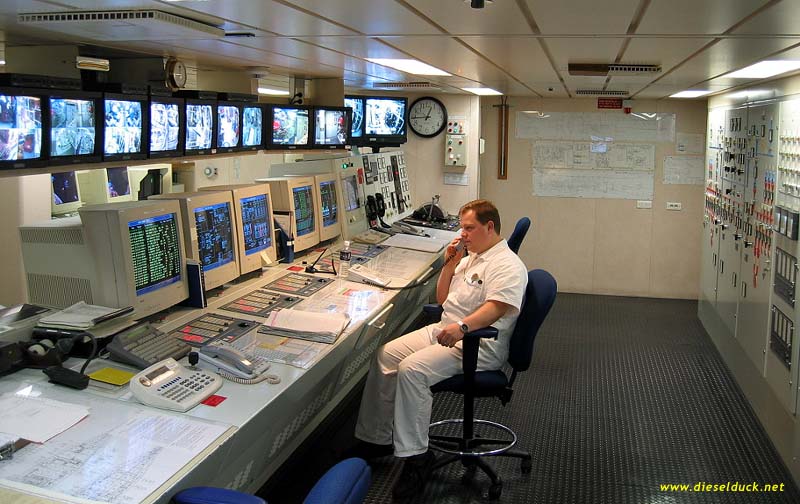
Is my Canadian Marine Engineer's license valid elsewhere in the world?
YES, I have, and I know many people have been, both deck and engineers, using their license on foreign going vessels and are working without any problems. Transport Canada revamped its regulations in the late 1990's to comply with international standards. It is a fairly "respected" certificate.
Often times a "paralleled" license will be applied for by the company, from the nation the ship is registered under, ie. Bahamiam license or Panamanian to meet regulations. These licenses are more a tax collection scheme rather than a skill evaluated license, but they make you official to work on the ship of the company. In the United States they will most likely not accept your Canadian License on local waters, i.e. tugs, casino boats, ferries, things like that. This has more to do with immigration and cabotage rules, than qualification.
"I am currently working as 1st assistant on a seismic survey vessel in the Gulf of Mexico. I hold a Canadian 2nd's license but since the vessel is Panamanian flagged, I work through a Panamanian license. My Canadian license has a definite advantage as the STCW regs are in full compliance."
- Received by email 08.2000
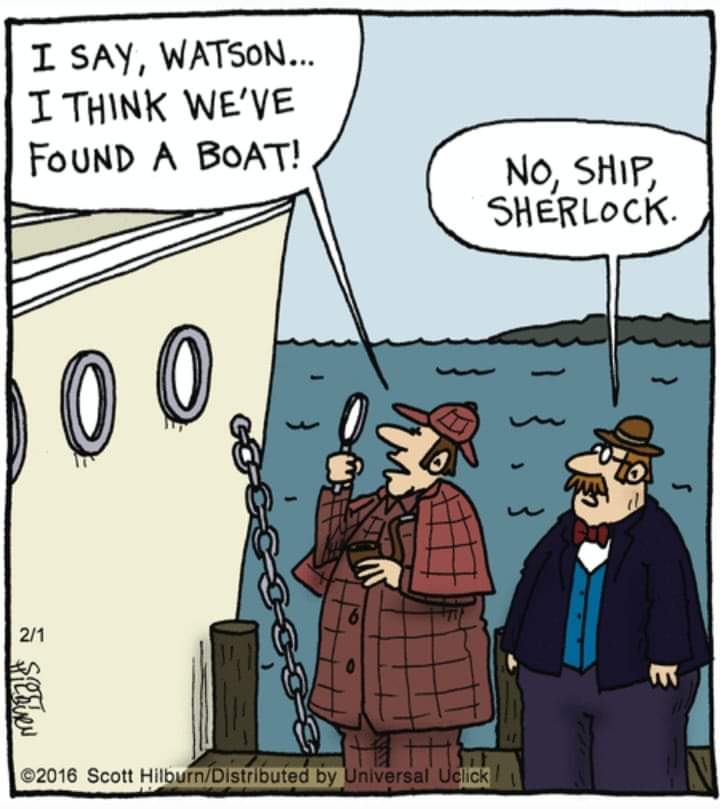
How often do I have to have a medical done ?
Every 2 years for all persons over 18 years old, under 18, every year.
The examination must be conducted by a Transport Canada approved doctor. The medical will include a color vision test which is troublesome to a large majority of men. If you are mildly colorblind, you can get alternative color vision test, and have them taken in to consideration with Transport Canada. They may issue a limitation on your license such as "no bridge watch keeping duties" or the like.
Don't forget to renew your medical. You will get kicked off a ship if you do not have a valid medical. Your approved doctor, upon successful exam, will issue a temporary / provisional certificate of medical fitness, valid for six months. They will then send the paper work to Transport Canada main Ottawa office, where doctors there, review your file, and issue you a permanent medical certificate.
In 2010-2011, the issuances of the official certificate of fitness has been taking considerably longer than 6 months, causing a great deal of grief and confusion. Check with your local Transport Canada Marine Safety office, to see about the procedure of extending you provisional certificate.
In early 2022, Transport Canada issued new guidance on Medical certification. "Domestic" CoC only had to perform a medical exam every five years. STCW CoC still need a medical done every 2 years. See TC Ship Safety Bulleting (SSB) 05/2022.
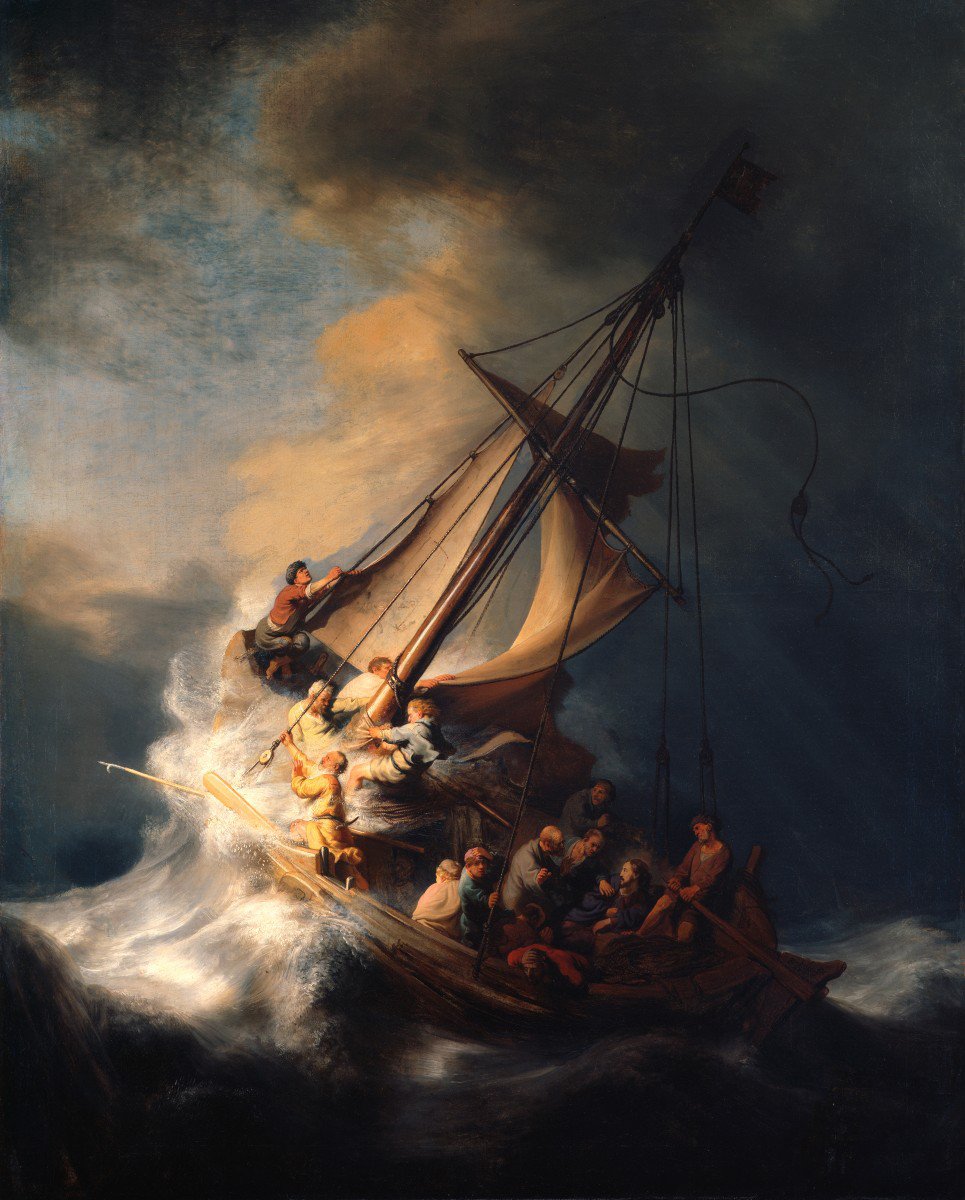 How much does all this cost (2015) ?
How much does all this cost (2015) ?
Of course every time you have to get a "ticket", it cost you, and cost you big. In 2011 all Transport Canada written Examinations cost CDN$27.50 and Orals are $55, with the exception of SVMO, for which there is no charge.
In 2008, Doctor is about $150.00, the first aid is about $550.00, each PPS course is about $1000.00, MED course vary in price from $320.00 to $1240.00. A set of books to help you study up to the second class ticket is about $2500. If you need to get more instruction from BCIT you'll spend spend spend, and that's just to live or commute to North Vancouver. Of course in Canada you'll be taxed GST / HST and other taxes on top (~12 %). Ouch ! No wonder were running out of seafarers!
For convenience and planning, I compiled a list of various costs involved in becoming a ship's engineering professional in Canada...
- Costs of becoming an Engine Room Rating (2013)
- Costs to becoming TC 1st Class COC using the Cadet Stream (2013)
- Costs to becoming TC 1st Class COC using the Alternate Path (2013)
Why do you only mention BCIT PMTC as training institute?
Well, I used to, mainly because I went there, and I am familiar with BCIT's Marine Campus in North Vancouver. But, it is no longer the only maritime school west of Ontario. A brand new facility was born in 2009, it is called Western Maritime Institute (WMI). It is located very near my home in Nanaimo, on Vancouver Island, which means I have seen it on a regular basis, and find it to be a very progressive establishment. They are superior to BCIT, in a way that they offer all relevant courses for beginners, MEDs, first aid, etc, under one roof, at one location, easily accessible, without big city prices and hassles - parking, lodging, rent, etc.
The one problem with WMI, is that no engineering course are currently been given, that's why I refer you to BCIT in Vancouver. They have the engineering facilities and the experienced instructors with relevant marine backgrounds for these types of courses.
There are other facilities in British Columbia which offer some nautical and MED (Marine Emergency Duty) courses such as Camosun College in Victoria, and North Island College in Campbell River. Outside of British Columbia, there are many others, just check above for links to them. Some of the better known in Canada, are Newfoundland's Memorial Marine Institute, Ontario's Georgian College, and Quebec's Maritime Institute in Rimouski.
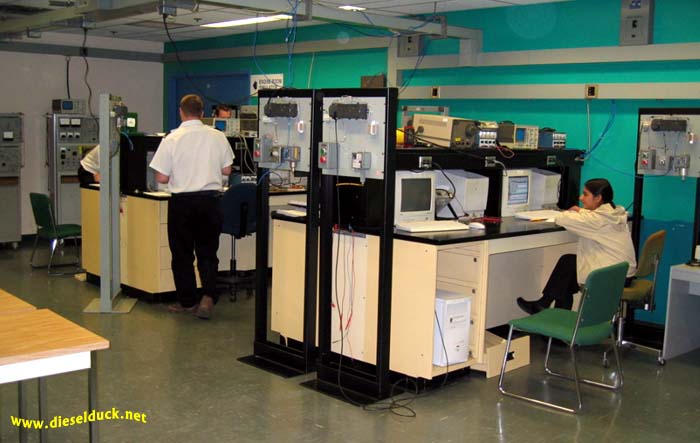
" How can people trust the harvest, unless they see it sown?"
- Mary Renault
How do I find those marine engineering books ?
Start by asking your peers, they may want to part with them. You can do that by checking out the local unions and associations, or post a "want add" on www.dieselduck.net own forum, The Common Rail.
If your still not finding them, you can directly go to the publisher's website such as McGraw Hill. The Reed's Engineering series can be found here, or here, from the publishers.
Looking for Marine Engineering reference and research material; text books and such? The list below compiles, pretty extensively, published works on Marine Engineering.
- Compendium of published Marine Engineering text and reference books. List 1, List 2
- Compendium of published Marine Engineering thesis papers
- Price list of Marine Engineering text books at BCIT in Vancouver
Ten things that require zero talent :
- Being on time
- Work ethic
- Effort
- Body language
- Energy
- Attitude
- Passion
- Being coachable
- Doing extra
- Being prepares
My buddy is studying for his exams. I know knowledge of the regulations is crucial, where do I find the info on the internet?
Regardless of which Canadian exam your are taking, it is imperative that you become familiar with the regulations pertaining to our trade. So to help you, I am listing some resources you can access from your home now:
- The main regulations portal pertaining to ships can be found here.
- Transport Canada issues many insightful publications that explain their positions. They are called Transport Publications (TP).
- The Canada Labour Code as it pertains to ships, and seafarers (part 2) can be found here.
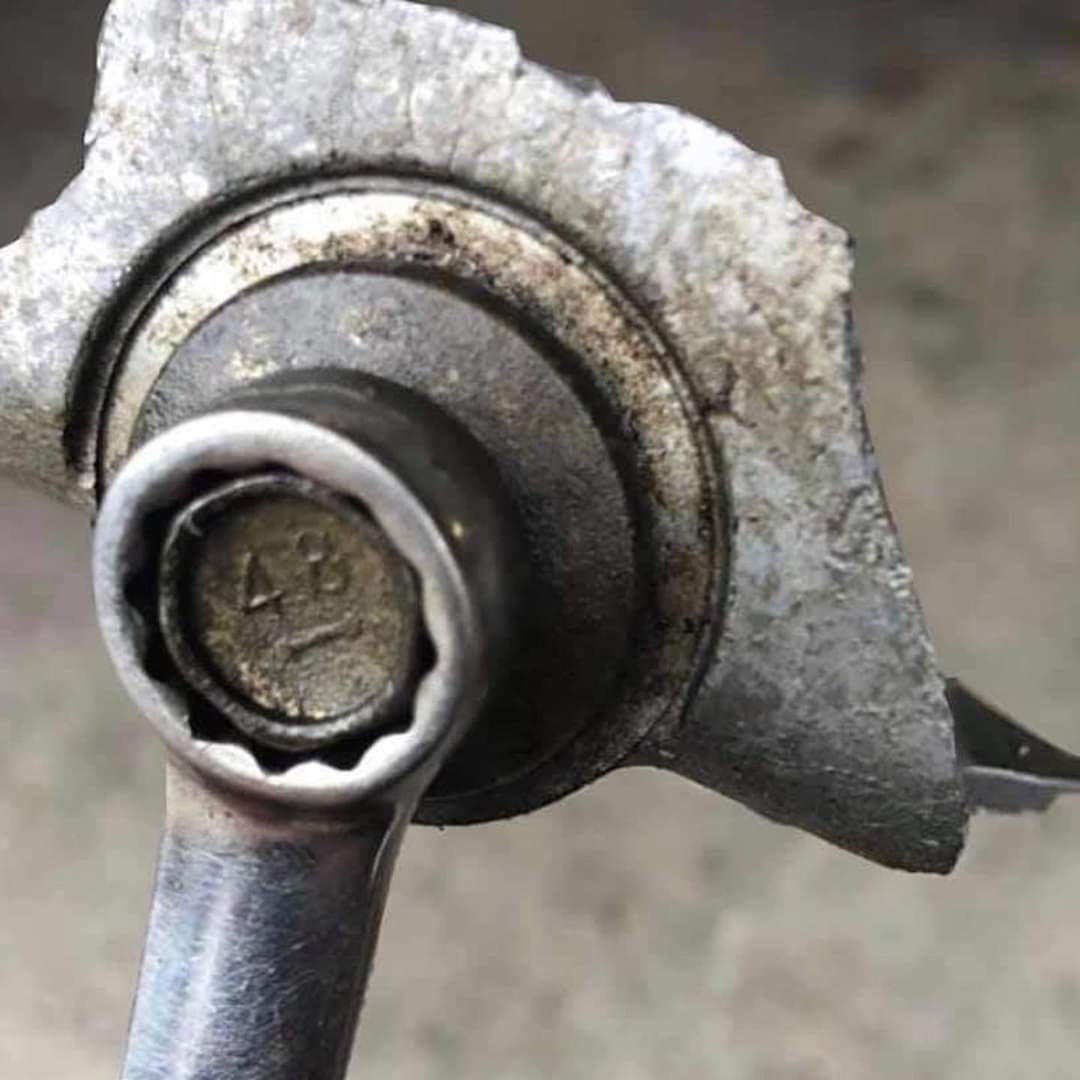
What's it like being a cadet on a ship? How about being a female on a ship?
Those are both very good questions. There is allot of different answers to those questions. So in order for you to get the best answer I've asked some of the cadets to share with us their experience. One cadet's experience is documented in her journal which she has agreed to share with us.
At the Canadian Institute of Marine Engineering's (CIMarE) annual conference, Maritech 2011, George Coman, a fourth year cadet, and Tarpan Roy, a first year cadet, both of BCIT, in Vancouver, made a presentation about their experiences as cadets. You can download George's presentation summary here (in pdf format), and Tarpan's here, to get further insights on being a marine engineering cadet.
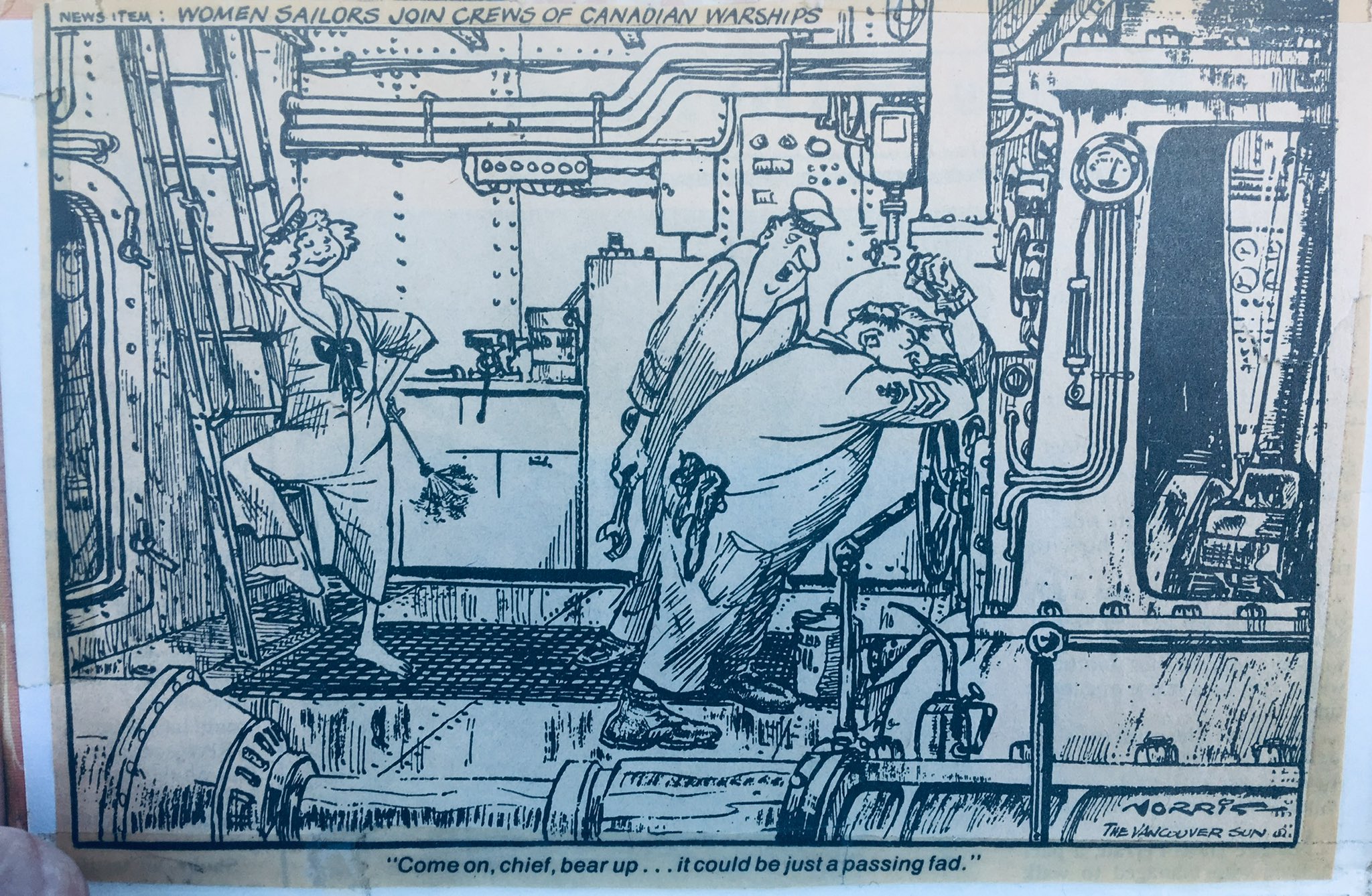
From the 1987 edition of the major newspaper, Vancouver Sun.
Needless to say, that newspaper in 2021 is barely hanging on,
whilst women are accepted in the ER and everywhere else on
the ship.
" My dad says Marine Engineering is not for girls. I
am in 10th grade. Seas fascinate me a lot. I asked my dad about
the same, and he at once was so irritated after listening my
wish. He says this job is not for girls. Can you please tell me
the reason why is this job not suitable for a INDIAN girl ?
"
Being a father myself, I can fully appreciate your father's
perspective raising a child is deeply demanding commitment and
we - as parents - make every effort to make sure they are taken
well cared for and provided with the best possible future.
It's not that seafaring is unwelcoming to women, but the
systems are built around the workforce, which I think is
officially 98% compose of males. Probably therein lies your
father's misgivings about your musing on Marine Engineering. The
job is further complicated by the extensive taxing of an
individual's resources - primarily the isolation of shipboard
life, further amplified by being a female surrounded by males.
Not to mention the rigors of the job itself, hot, dirty, stinky,
physically hazardous environments, without natural light, etc.
Having said that its not impossible or improbable for you to
succeed in the field, as matter of fact the right organization
might be a great fit for you, since as a young woman, your are a
bit unique to the workforce. But make no mistakes, the job is
extremely taxing and frustrating at times, not just because of
your sex. But there is some real concerns about your physical
well being and your ability to handle misogynistic or other
potential un welcomed behaviors by your fellow workers, who may not
have or hold your value system.
Oh was there a sailor free to choose, that didn't settle somewhere near the sea?
- Rudyard Kippling
What is the Marine Engineer 4 th class exam procedure like, and do you have any example questions?
The answer below is no longer valid. Please see top of page for information on new Transport Canada procedures, in place, on a temporary basis, until new Marine Personel Regulations (MPR2019) come into force, expected, summer 2019.
You'll have to qualify for "seatime", then the TC Marine Safety engineering examiner will let you write the EK (engineering knowledge) General - 150 multiple choice questions. After you achieved a passing mark, you'll be allowed to write the EK Motors exam - 75 multiple choice questions. At this point they will most likely call you after two weeks to ask you to come in for a one on one, "free-form", oral exam with the examiner.
You should pick up the 4th class study guide put out by TC Marine Safety which makes you aware of the many regulations and their application to your vessel. And, yes, I do have fourth class questions: check out the exam question collection in the Ship's Library. They are quite dated but still a handy reference - I saw about half of them on my actual TC exams in 1999.
This website has been of great use to me!! I
am currently writing exams for my 4th class motor. As I’m sure you know the 4th
class has been upgraded as is no longer just generals motors and orals, now you
have to write math, electro, thermo, same as the rest for 3rds, 2nd, 1st, etc. I
currently use your 3rd class examples for my 4ths studying. I noticed most of
the easier questions on the 3rds list are good examples, and there is always one
question exact from your list I find on my transport Canada exams. I am just
wondering if you would be interested in adding this section to your site. I am
currently wrong 4th electro but have lots of examples of questions that were on
previous test. If more info wanted please contact. This would be a great help
for future engineers and a good add on to an already great website.
Stephen Critchley - 2021.04 (the
"questions" referred to are located in the
Ship's Library - ml)
I have extensive experience and have been formally trained in a country other than Canada. What can I do once I immigrate and wish to work here ?
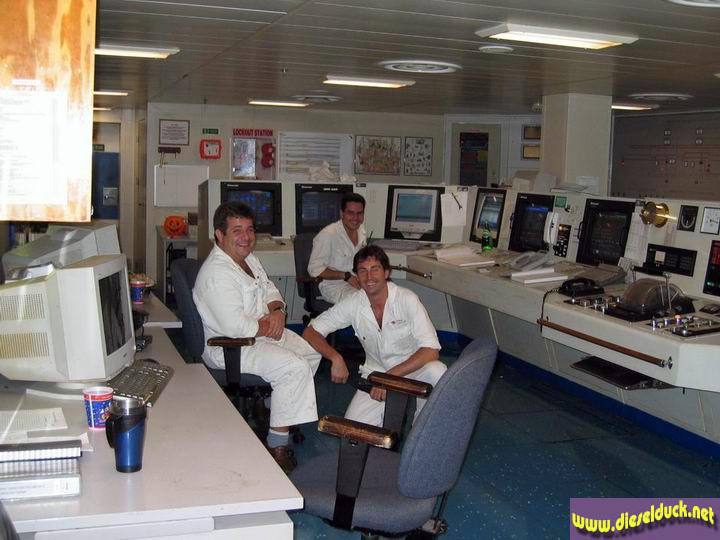 I use to get this question
quite often. Canadian Information Center is a Canadian Government Agency which
acts as a clearinghouse for international credentials information, that is there
to help you answer your questions when dealing with this procedure.
I use to get this question
quite often. Canadian Information Center is a Canadian Government Agency which
acts as a clearinghouse for international credentials information, that is there
to help you answer your questions when dealing with this procedure.
A Transport Canada examiner was kind enough to give us an overview of what's involved in transferring a foreign obtained license, to the Canadian equivalent.
Immigration of licenses are covered under Direct Entry in Marine Personnel Regulations (MPR) 119.
Documentation supporting the request for direct entry, including valid STCW Certificates, notices of Examination, STCW compliant MEDs and school transcripts are presented to an Examiner locally, who forwards it all to HQ in Ottawa. HQ will verify the authenticity and validity of the documentation and assess them according to TC requirements in MPRs and TP2293. The assessment will be transmitted to the local Examiner, who contacts the candidate.
If an STCW CoC is not valid for sea, then no exemptions will be awarded for Examinations. MEDs are credited, provided they are STCW compliant. Taking of engineering knowledge exams are never exempted. Sea time can be a stumbling block, our requirements for 1st Class differ from STCW, we demand 9 months at 3000 Kw and the remainder of the 15 months to exceed 1500 Kw. The clock for 1st class sea time doesn't start until 2nd class is attained, then sea time is calculated WHILE HOLDING SECOND CLASS ticket. (MPR 144)
Submitted - May 2010
" The happiest people don't have the best of everything, they just make the best of everything "
- Anonymous
I like to design ships but don't want to go to sea; is there something else i could take in university?
On this website we are most concerned with the skilled professional who operate and maintain ships and other marine structures. But Marine Engineering is a descriptive for a wide range of specialists. Our close cousins is the Marine Engineer / Naval Architect, those people who are ashore and design ships and their structures. These are usually mechanical engineers who then specialize in Naval Architecture. You can visit the University of BC (UBC) Naval Architecture program information page here.
I am hoping to start as a wiper/ oiler or ordinary seaman. What
tickets/qualifications would I need to do this? I'm not interested in college
courses, just the courses required to get me aboard a ship. a1,a2? lol, it's all
Greek to me.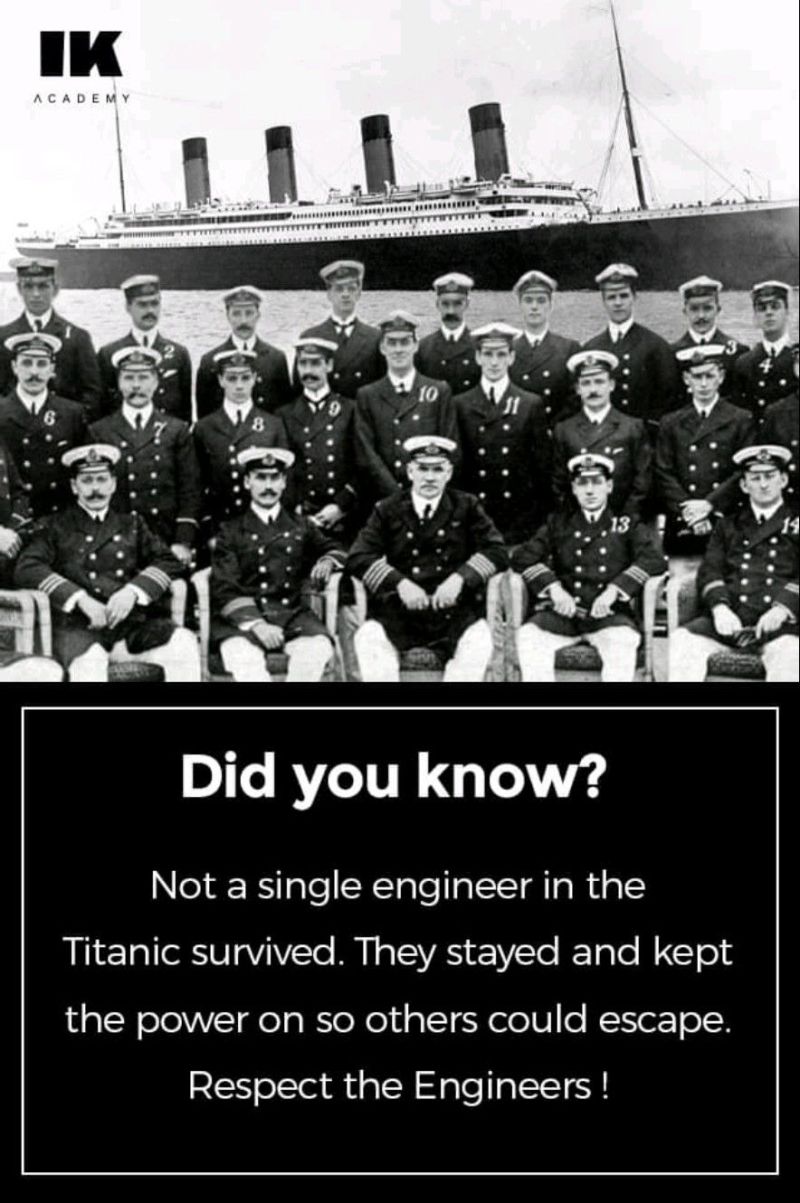
On this web page, the MED stands for Marine Emergency Duties and the levels A1, A2, B1, B2, C, and D are the different ones you must take. With the arrival of the new Canada Shipping Act 2001, the MEDs have changed named to reflect IMO's STCW standards. Although the core training remains the same, the names have changed. What was "MED A1" is now "STCW VI/1" (basic safety), "MED B1" is now "STCW VI/2" (survival craft and rescue boats, other than fast rescue boats) "MED B2" is now "STCW VI/3" (Advanced Firefighting for Officers).
TC has retained "MED D" (MED for senior officers), and "MED A2", with respect to small passenger vessels (required for SVMO - Small Vessel Machinery Operator). "MED C" (MED for Officers) is no longer in use. More information on these changes are stipulated in "Marine Emergency Duties Training Program - TP 4957"
Although these courses are generally offered at "colleges" they are not college courses. They are the minimum safety training that you need in order to work on a ship as a rating (wiper, able seaman) as dictated by Transport Canada. They are guided by the Standards of Training, Certification & Watchkeeping regulation of 1995 (STCW95) as set forth by the International Maritime Organization (IMO).
If you want to proceed further down the laid out path (above - for engineers), then taking college course could apply to you.
If you want to work as a rating (non officer crew member of a ship) on a licensed vessel (ie. great lakes, coast guard, ferries), you need to fulfill the requirements laid out on the first steps (above - "Engine Room Rating")... the MED A1, B1, B2 (now named differently in the official regs), and Marine Advance First Aid that you mentioned above.
If you feel these are too much then, you could try smaller boats, like fishing, but even there, nowadays, you will find that the emergency training is required and most often offered at a college also listed above.
I'm scared about my future, is there anyone I can talk to about working in the marine industry?
On this site, we try to offer as much information as possible to demystify what it is to be a professional seafarer, working in the engine room of a ship at sea. If you don't find what you are looking for on the main site, you can always ask questions on the forum area, The Common Rail. You can of course send me question by email, I answer all my email.
|
The Engine Room
The sparkling triple expansion, -John Baillie
|
Hail to the Chief Engineer
The siren shrieks its farewell note
For that better men have done,
Is that
glory goes to those that win the victory. |
- Meet some women who make a living working in the offshore industry, around the world
- Read about an engineer's post sea-life career as Engineering Superintendent for a cruise line.
- The Merchant Navy Training Board is a British based website which offers young persons, information about seagoing careers. The International Shipping Federation also operates a web site for young people curious about a futures at sea. Here's another one - from Scotland.
- The USCG is the licensing authority for the USA. They have a webpage which states the steps to getting mariner papers there.
- Want to be a deep sea fishermen? Training is available in NZ.
- Officercadet.com is a UK based site serving officer cadets
- Unitest is Polish company providing ER simulators and testing
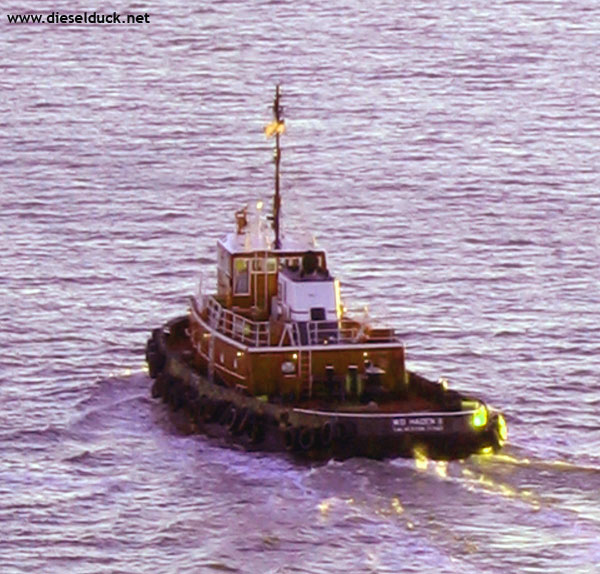
Be careful of your thoughts,
for your thoughts become your word.
Be careful of your words,
for your words become your actions
Be careful of your actions,
for your actions become your character.
Be careful of your character,
for your character becomes your destiny.
- Unknown
This page originally created in 1999. Extensively updated in 2012





